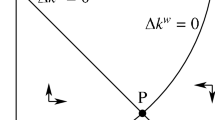Summary
We have examined the proposition that initial differences in per capita wealth are eliminated across generations if people face the same opportunities and behave alike. Although we may not rule out that this intrinsic identity of individuals is, indeed, an equalizing force under certain circumstances we have analysed a model in which this is not necessarily true. Apart from differences in initial endowments all agents in this model receive the same wage and the same rental, they have the same number of children, and they possess the same utility function. This function reflects the satisfaction agents derive from both life time consumption and the legacy they leave to their children. Even if this structure remains unchanged for a long sequence of generations the offsprings of the poor may stay poor relative to the offsprings of the rich. The society may end up with as many classes as it started with.
We have identified a family of multi class societies which exhibit long run stability. This family is characterized by a large average per capita wealth and relatively small differences between rich and poor. On the other hand poor societies with large differences in individual wealth are dynamically unstable. They have a chance of eventually belonging to the former family of economies.
Similar content being viewed by others
References
P. G. Althaus (1980): Differential Fertility and Economic Growth, Zeitschrift für die gesamte Staatswissenschaft136, pp. 309–326.
G. S. Becker and N. Tomes (1979): An Equilibrium Theory of the Distribution of Income and Intergenerational Mobility, Journal of Political Economy87, pp. 1153–1189.
D. L. Bevan and J. E. Stiglitz (1979): Intergenerational Transfer and Inequality, Greek Economic Review1, pp. 8–26.
A. S. Blinder (1973): A Model of Inherited Wealth, Quarterly Journal of Economics87, pp. 608–626.
G. Gandolfo (1980): Economic Dynamics: Methods and Models, Second revised edition, Amsterdam-New York-London.
G. G. Loury (1981): Intergenerational Transfers and the Distribution of Earnings, Econometrica49, pp. 843–868.
W. Oberhofer (1977): Stabilität nichtlinearer Differenzengleichungs-systeme,in: H. Albach, E. Helmstädter, and R. Henn (eds.): Quantitative Wirtschaftsforschung — Wilhelm Krelle zum 60. Geburtstag, Tübingen, pp. 523–534.
E. Schlicht (1975): A Neoclassical Theory of Wealth Distribution, Jahrbücher für Nationalökonomie und Statistik189, pp. 78–96.
J. E. Stiglitz (1969): Distribution of Income and Wealth Among Individuals, Econometrica37, pp. 382–397.
M. Straub and A. Wenig (1982): Human Fertility and the Distribution of Wealth, Discussion Paper, University of Bielefeld.
Author information
Authors and Affiliations
Additional information
This paper was written during a visit of the first author to Bielefeld. The support granted by the University of Bielefeld during this visit is gratefully acknowledged. We thank anonymous referees for their comments.
Rights and permissions
About this article
Cite this article
Bental, B., Wenig, A. Will all people become alike if they are alike?. Zeitschr. f. Nationalökonomie 43, 289–300 (1983). https://doi.org/10.1007/BF01283576
Received:
Revised:
Issue Date:
DOI: https://doi.org/10.1007/BF01283576




